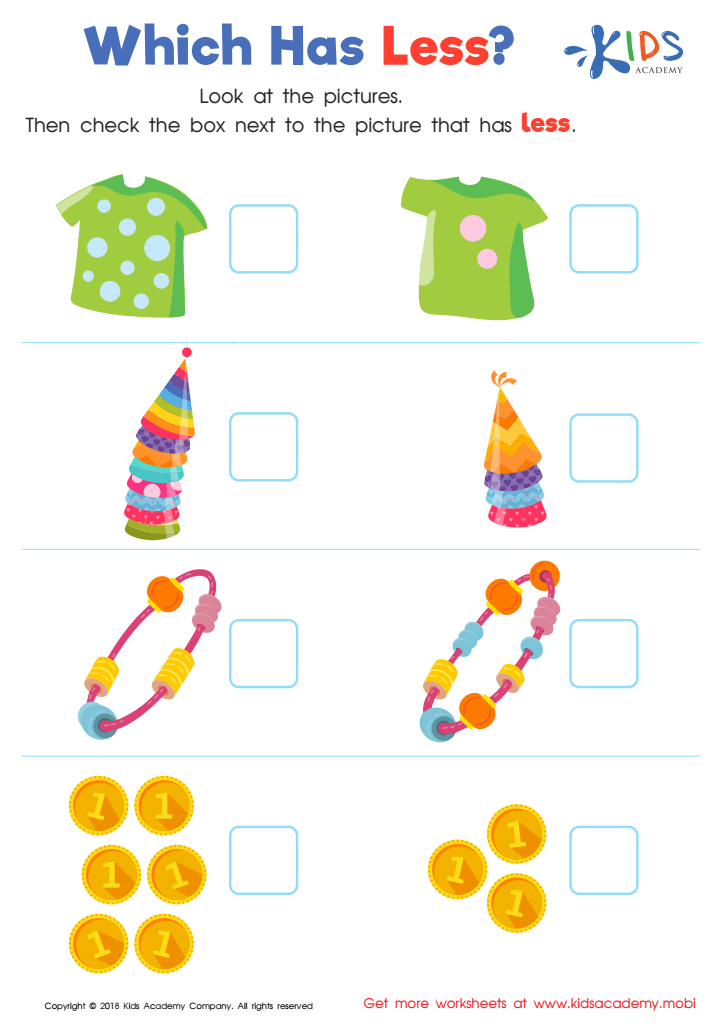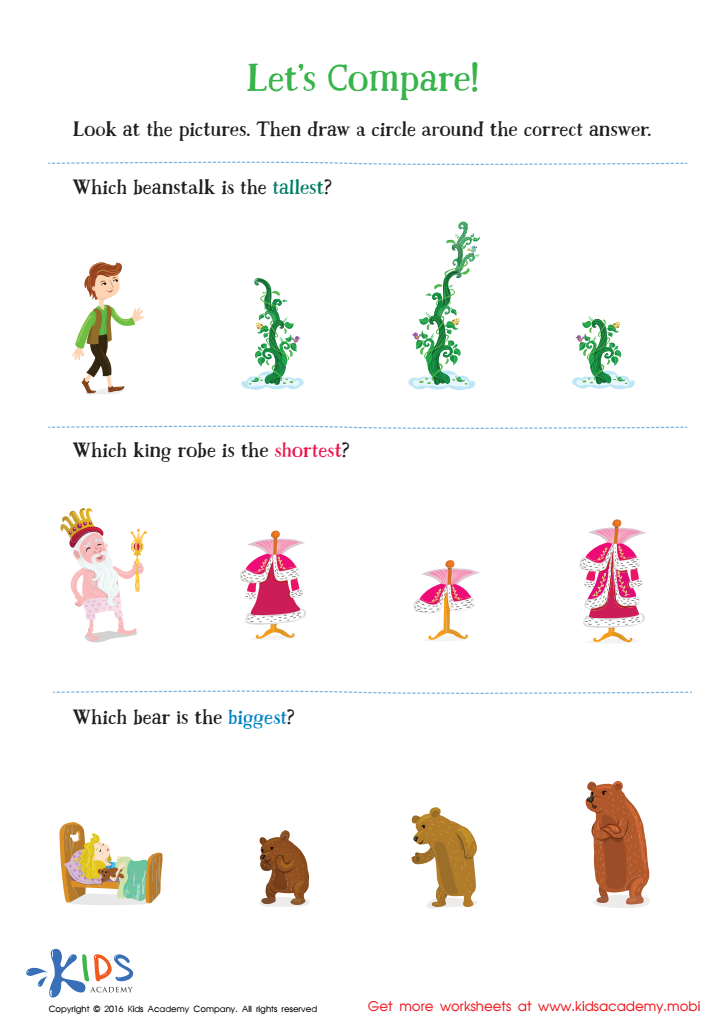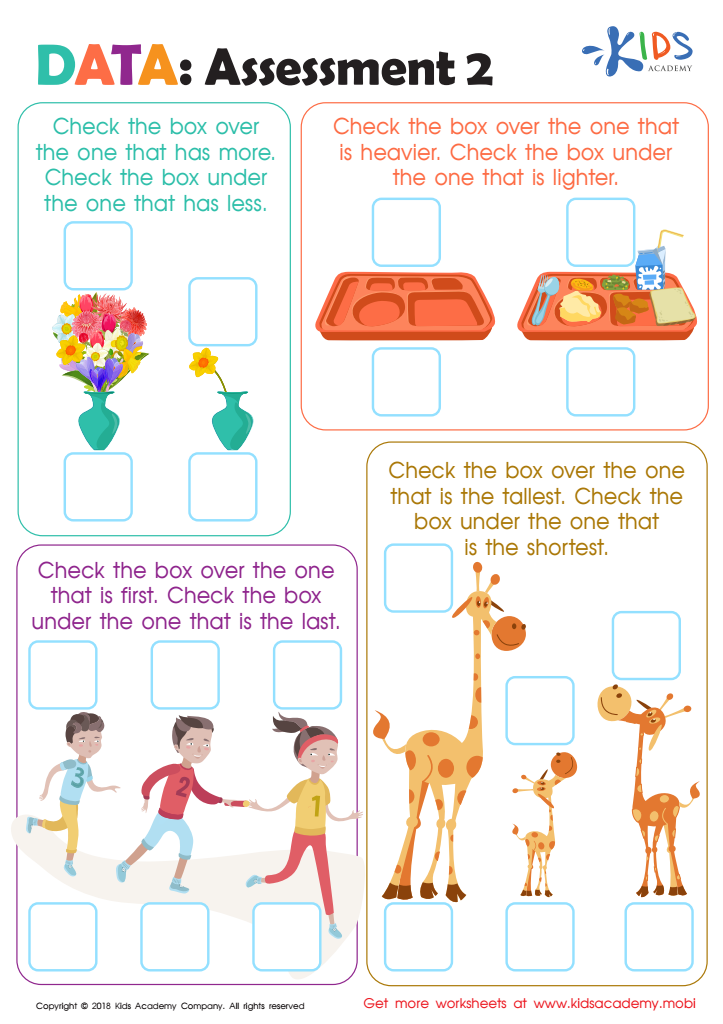Basic Math Skills Comparison Worksheets for Ages 6-8
3 filtered results
-
From - To
Discover engaging Basic Math Skills Comparison Worksheets designed for children aged 6-8 at Kids Academy! Our professionally crafted worksheets focus on fundamental math concepts such as greater than, less than, and equal to, helping young learners develop critical skills in a fun and interactive way. These educational printables enhance cognitive abilities and bolster confidence in comparing numbers and quantities. With colorful designs and age-appropriate exercises, Kids Academy makes learning math enjoyable and stimulating. Ideal for classroom use or at-home practice, ensure your child masters essential math skills with our expertly developed comparison worksheets!


Which Has Less? Worksheet


Fairy Tale Worksheet: Let's Compare


Data: Assessment 2 Worksheet
Developing strong basic math skills during the ages of 6-8 is crucial for children's overall academic and cognitive development. At this early stage, children are establishing the foundational concepts that will support more advanced mathematical understanding in later years. Comparing their skills helps identify both strengths and areas needing improvement.
Parents and teachers should care about these comparisons because they serve as essential indicators of a child's progress. Identifying gaps early allows for timely interventions, which can help prevent future difficulties. This proactive approach can build a child’s confidence and reduce math anxiety, ensuring a more positive attitude towards the subject.
Effective mathematical skills aid in problem-solving and critical thinking, which are applicable across various disciplines beyond math itself. Furthermore, comparing these skills with established benchmarks provides insights into the effectiveness of current instructional strategies, guiding educators to modify teaching methods if necessary.
Lastly, on a more practical level, foundational math skills are imperative for everyday tasks such as understanding time, handling money, and measuring quantities. Ensuring that children master these early skills sets them up for a life of independent decision-making and higher academic achievement. Therefore, parents and teachers should closely monitor and nurture these early mathematical abilities to secure a solid educational foundation.
 Assign to My Students
Assign to My Students




















